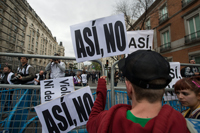About the project
This project revolves around the concept of EU citizenship as a resource for social and political resilience for EU citizens that are faced with particular challenges during periods of economic and political crisis. EU citizenship has thus far been mostly applicable to mobile elites and the realization of their cosmopolitan life projects. We test the proposition that in the current conditions of socio-economic transformation and uncertainty, EU citizenship and the rights stemming from it becomes a potential resource of resilience for citizens in their various attempts to cope with the negative consequences of crisis.
Exit, Entry, Voice and Loyalty
The distinctive features of EU citizenship lie in the possibilities of recombining exit (as measured through mobility across borders) with entry (rights of access and participation), voice (political mobilization), and loyalty (the multiple allegiances of mobile citizens). Citizens’ resilience can then be studied through the various ways exit, entry, voice and loyalty are enacted, extended and asserted by crisis-struck citizens.
Crisis-struck migrants in Norway
Providing empirically grounded answers to this issue is interesting, not only from a European perspective, but also from a Norwegian one: We analyse the effects of increased mobility and mobilization on Norwegian society and politics. Norway has become a receiving country of economic migrants from the countries that are most affected by crisis. The new structural inequalities in Europe question the inside-outside perspective that is traditionally informing Norway’s ambivalent position towards the European project. In this context, the project unfolds in three stages: a) societal dynamics and experiences of crisis-struck EU migrants in Norway; b) how their presence and experiences are dealt at institutional level (by state authorities and non-governmental organisations); and c) how their presence and experiences are reconstructed and debated in the Norwegian public sphere.
Financing
The project is funded by the Norwegian Ministry of Foreign Affairs for the duration of one year (2013).
